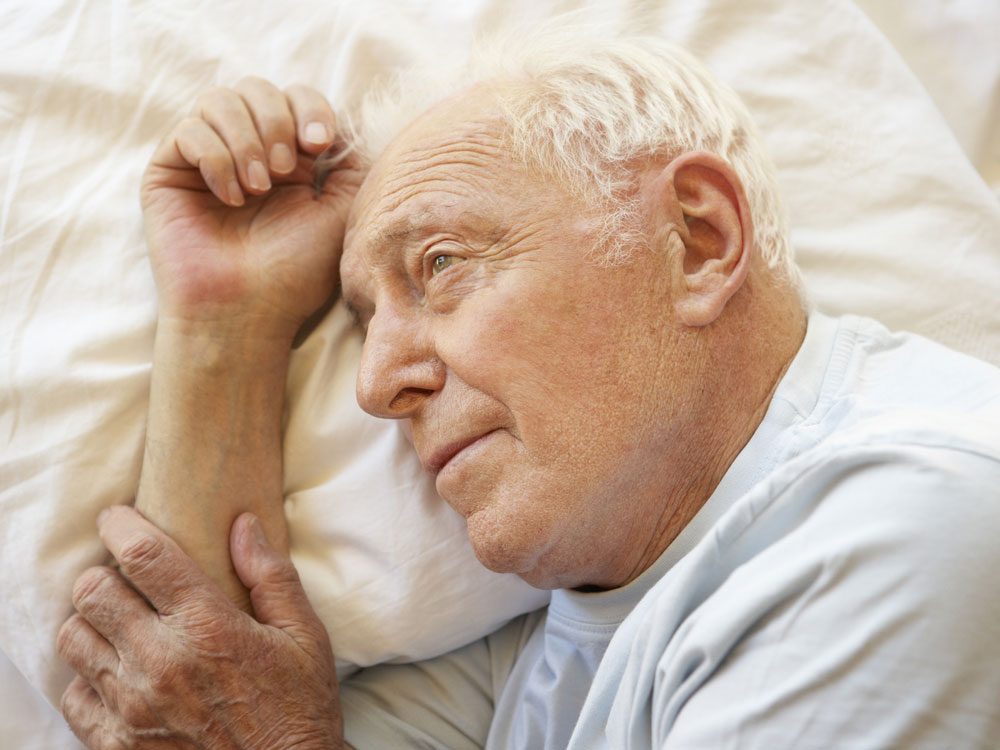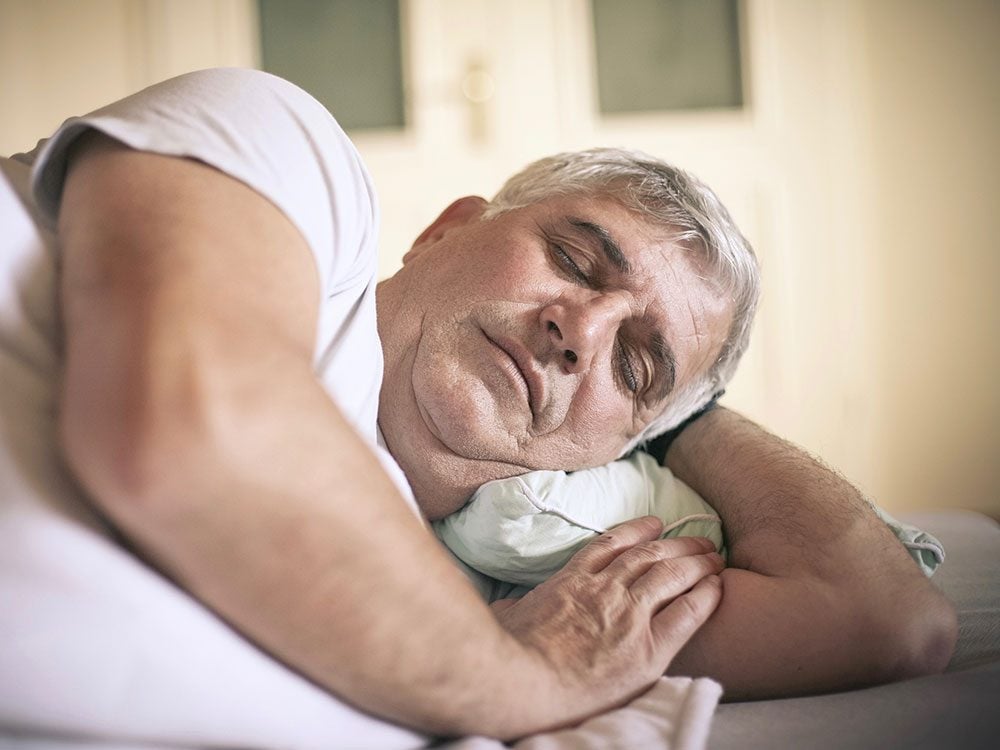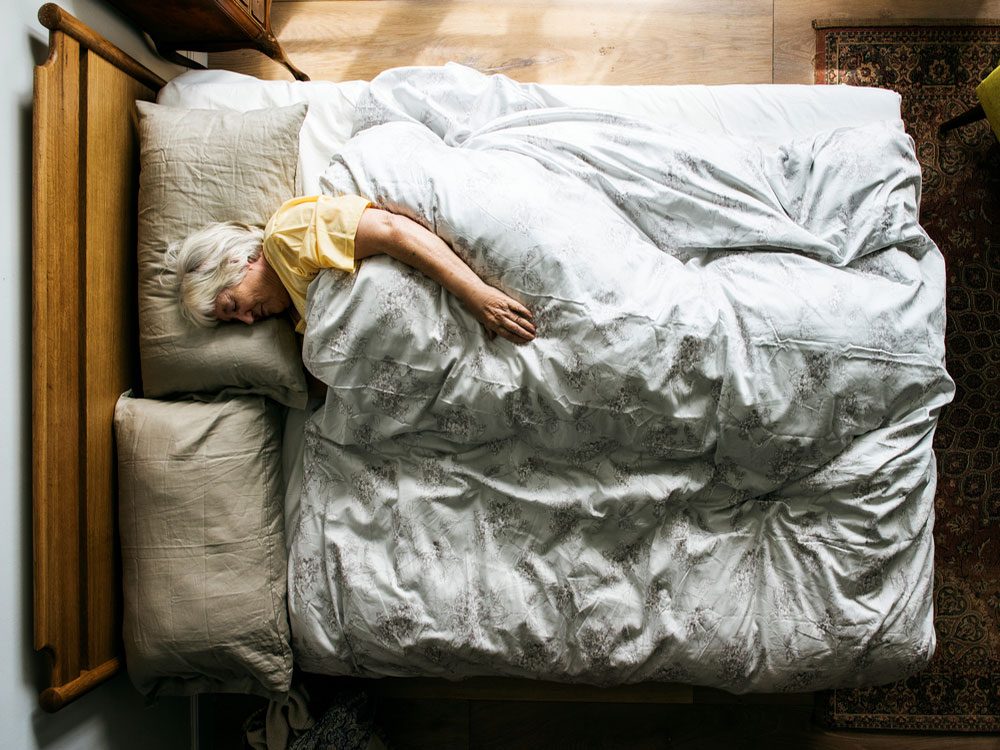
The Truth About Sleep Deprivation and Aging
As we get older, getting enough sleep to feel well-rested becomes increasingly difficult. Dr. Julie Carrier, the director of the Canadian Sleep and Circadian Network, answers five questions about sleep and aging.

How Does Aging Affect Our Slumber?
Dr. Julie Carrier: You can’t expect to sleep as well at 65 as you did at 20. You’ll sleep for a shorter time and less deeply. And you’ll become more sensitive to interference; for instance, stress or noise that wouldn’t have roused you when you were younger. As such, you’ll need to take better care of your rest.
Find the best sleeping position that works for you with this simple guide.

Do These Changes Have an Impact on People During Their Waking Life?
Dr. Julie Carrier: Definitely. Just because something is normal doesn’t mean it won’t have consequences. The decline in sleep quality has the ability to affect memory and overall health.
This is one of the best things you can do to ward off memory loss.

Are Scientists Currently Working on Any Treatments to Help Improve Sleep in the Elderly?
Dr. Julie Carrier: Yes, but they’re all in the early stages. For instance, to promote a deeper sleep, researchers are experimenting with transcranial stimulation. But we can’t yet say for sure that it works.
Check out these expert-approved tips for a deeper sleep.

Can Sleeping Pills Help?
Dr. Julie Carrier: There aren’t really any pharmaceuticals that can increase sleep—and especially not deep sleep—without having negative consequences the next day.

Is It OK for Tired Seniors to Nap During the Day?
Dr. Julie Carrier: Yes, so long as that doesn’t lead to insomnia at night. And you need to keep in mind that with age comes an increased chance of various sleep disorders. If you’re excessively tired all day, that’s not among the normal, expected changes. It would certainly warrant a visit to the doctor.
Suffering from insomnia lately? Try these seven sleep-promoting strategies!